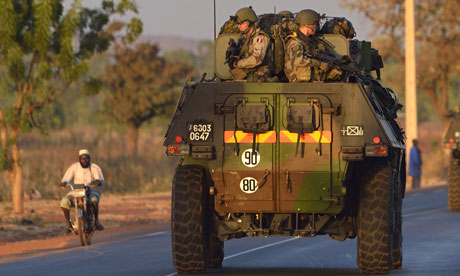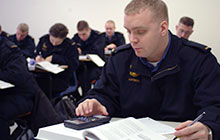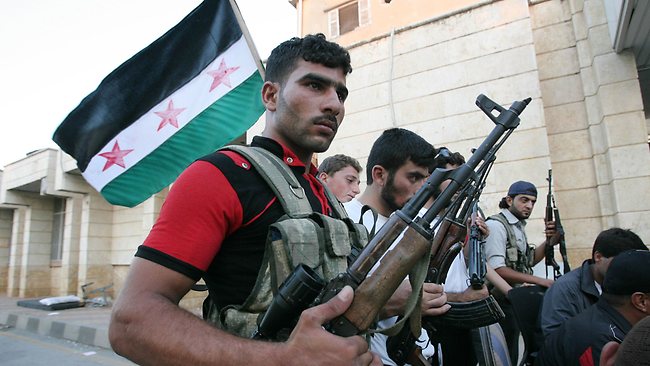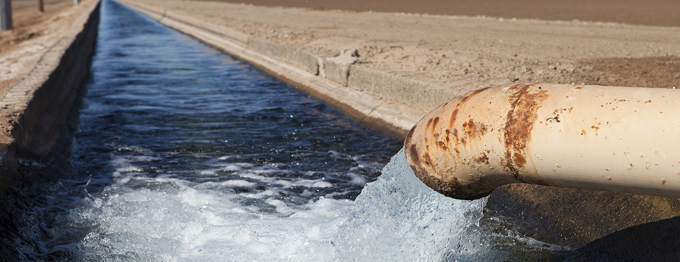The phrase, “line in the sand” is a metaphor with two juxtaposed yet fundamentally related meanings. The first is in reference to a point beyond which none dare proceed, and the second is of a point, which if crossed, leads to irreversible consequences.
So too, the recent conflict in sub-Saharan Africa represents a “line in the sand” – the international community’s end-point of tolerance for the attempts of Islamic extremists to create something of a pre-2001 Afghanistan in Western Africa. It is also an impossible commitment for countries like Canada whose past international security collaboration cost dearly in both lives and resources.
Background
Last week Prime Minister Stephen Harper confirmed the extension of logistical support to French troops engaged in a land war with al-Qaeda-linked Islamic extremists in the landlocked, West African Republic of Mali. This week, the public learned that Canadian Special Forces are on the ground in Mali protecting Canada’s “diplomatic assets” – more of a reference to diplomatic personnel, than embassies or economic interests. Furthermore, Canada is expected to contribute $13 million in aid, as part of the $453 million raised at the African Union donor conference. Since the start of the French, “anti-terrorist” intervention on January 16, 2013, the declared strategic goal of the French in Mali has been nothing less than a “total reconquest” of Mali’s extremist-controlled north, which has declared itself independent as the state of Azawad. Although over thirteen countries along with the Economic Community of West African States (ECOWAS) have pledged to support France’s “Operation Serval” to dislodge the extremists, France remained the only NATO member bearing the brunt of the realities involved in ground combat, until today. The government of UK Prime Minister David Cameron has decided to send 330 military personnel as part of a Brussels-brokered mission to the country.
France in Africa
French intervention in the struggle of its former colony exemplifies not only continued affinities between former-colony and colonizer, but also perhaps a lesson learned from south-central Asia and the importance of security missions such as the NATO-led International Security Assistance Force (ISAF) in Afghanistan. Quite simply, the capture of an entire state by religious extremists, whether through democratic elections or armed conflict, is no longer tolerable after the morass of Taliban Afghanistan pre-2001.
After more than half of Mali’s territory lay under extremist control, France committed itself to the rescue of an entire country with very ambitious, if not overly optimistic goals of, “reconquest” with an end to the conflict, “…in a matter of weeks” according to French Foreign Minister Laurent Fabius. However, providing timelines and schedules is clearly premature for the conflict in Mali.
Canada’s clear limits
While French intervention results from a line crossed by Islamic extremists in France’s former colonial space, other countries – many of which continue in a reduced capacity as ISAF contributors but who have no direct relation to West Africa – perceive a different set of limits. The Harper Government has clearly demarked the extent of Canada’s involvement in the West African conflict. First, Prime Minister Stephen Harper announced a one-week tour of a C-17 Globemaster transport plane ferrying supplies and military hardware from French military bases, and then he made a clear declaration that Canadian troops will not participate in a combat role. Proposals to extend and expand the scope of Canada’s existing logistical support only reinforce the idea that Canada has paid its dues over and above as a member of the international community.[captionpix align=”left” theme=”elegant” width=”320″ imgsrc=”http://www.cbc.ca/gfx/images/news/photos/2013/01/22/li-c17-loading-03852224.jpg” captiontext=”Canada recently extended its C-17 mission in Mali to February 15.”]
Forecasts and lessons learned
With the certainty of no “boots on the ground” Mr. Harper is in search of, “broad consensus” on the domestic front on whether Canada should continue its role in supporting the French. The conflict in Mali is ultimately an example of two interpretations of the “lines in the sand” metaphor. French intervention came after US Secretary of Defense Leon Panetta signalled a strategic shift away from Europe, indicating that the custodianship of sub-Saharan peace and security now fell squarely on Europe. All things considered, a French intervention in Mali was the most logical recourse, and with French forces already firmly in control of many of the major northern cities including Timbuktu, other countries like the United Kingdom are considering assisting the French. It is difficult, however, to determine whether Canada’s assistance to French forces in Mali is an extension of transatlantic bonds, or of the common obligation felt on the part of Western countries. Above all, the size and scope of Canada’s assistance in Mali is checked by past sacrifices in international operations.
Although US non-involvement in Mali is both explainable and understandable, the absence of the EU as an intervening force until this week is frustrating to the international community. Save for humanitarian assistance, EU non-involvement in Mali over the last few weeks demonstrated the long road towards an effective European army. The recent move of the UK to participate in Mali as part of an EU mission comes after the bulk of the fighting has been already done by French forces. It also demonstrates that the EU’s existing military institutions and structures, such as the rapid reaction forces and battle groups remain a work-in-progress.
The conflict in Mali, however, is important in forecasting the schema of future interventions in Europe’s immediate post-colonial space. Former colonizers with a regionally long-enough historical presence, such as France, could become interveners by default, until a majority of Europeans are willing to substantively commit lives and resources to conflicts which may be completely disconnected from their particular national experiences and interests. Until then, intervening actors such as France deserve multilateral support, while EU underdevelopment and inertia in security, defense, and power projection in an age of US regional disengagement must be recognized, understood, and called to change for the security challenges of the future.




